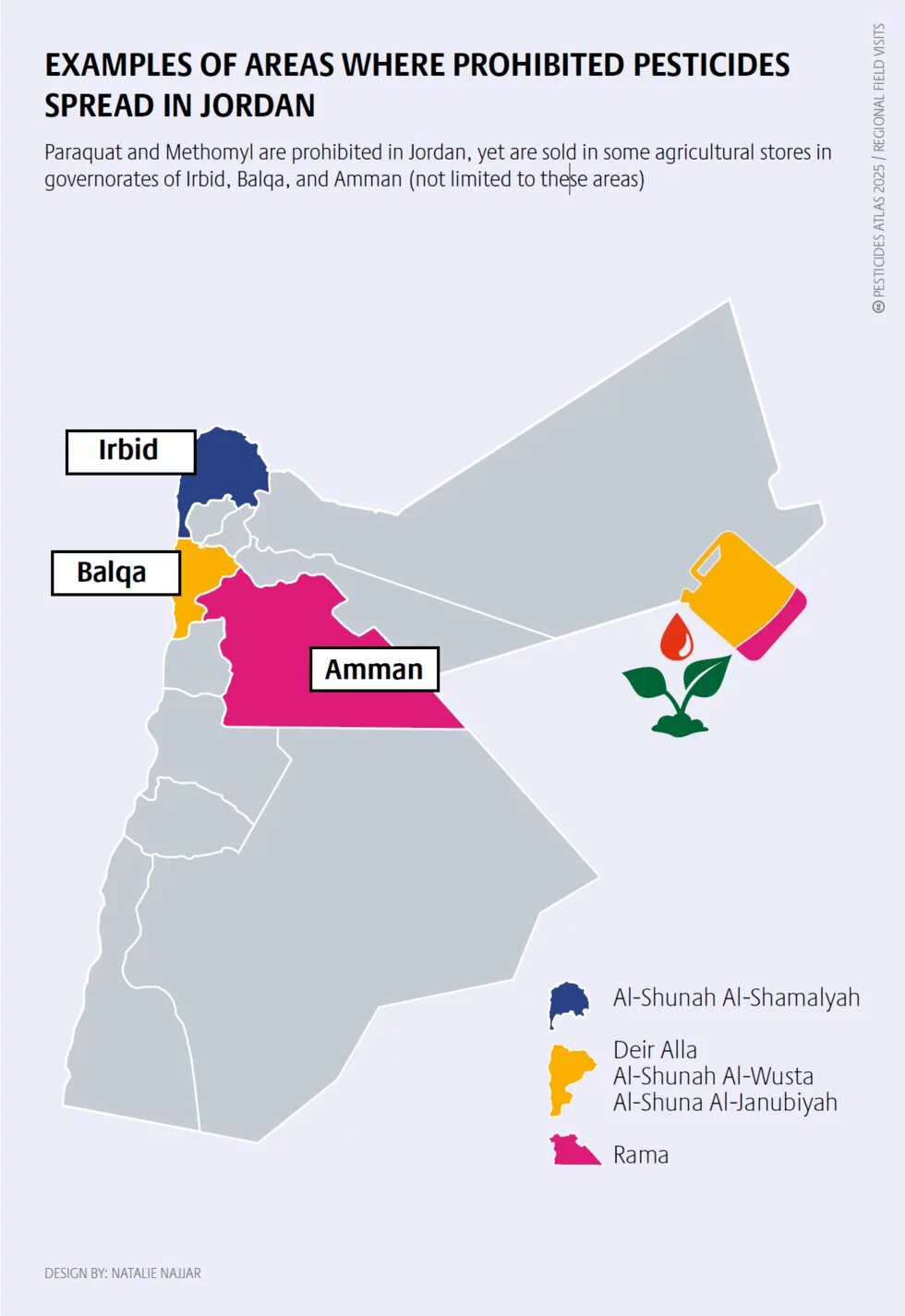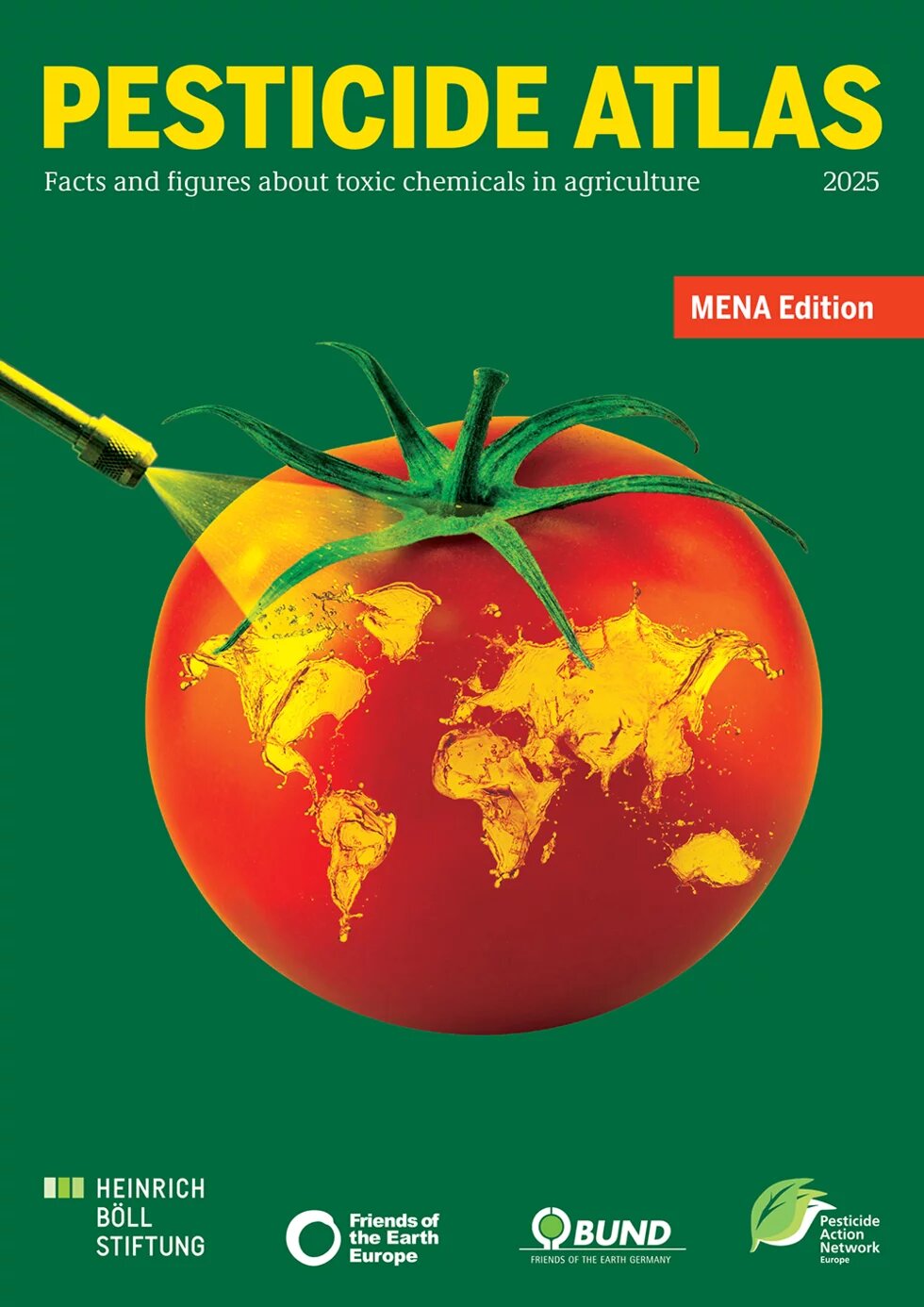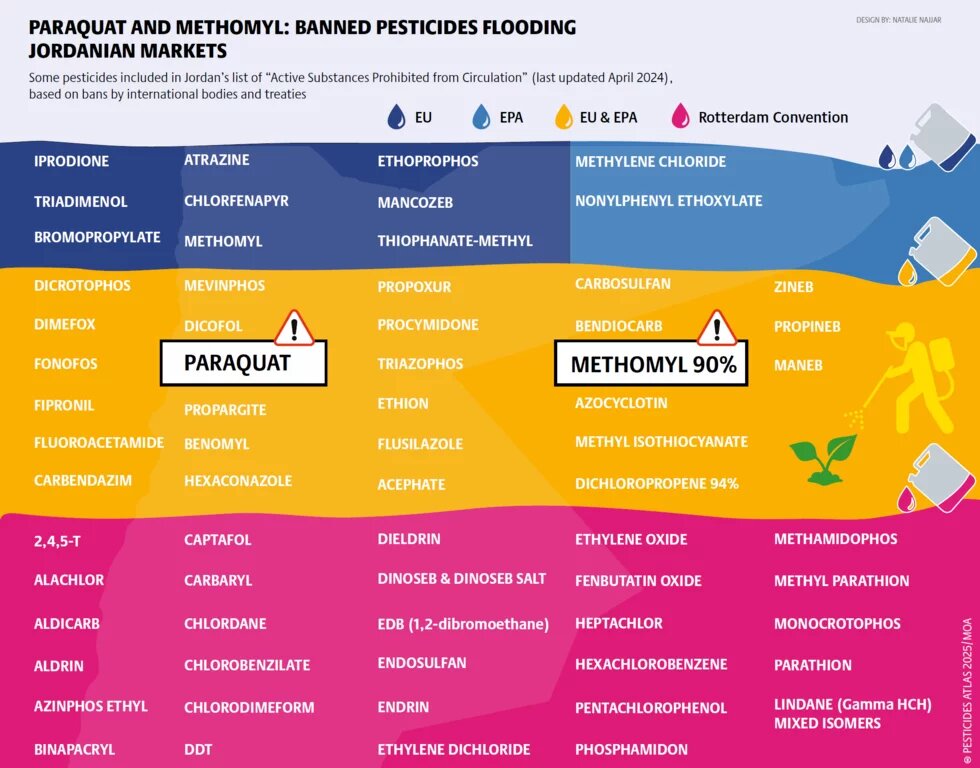
Due to high competitiveness in regional and global vegetable and fruit markets, farmers resort to using banned pesticides, such as paraquat and methomyl, to quickly eliminate crop pests and achieve financial profits, disregarding human health and the environment.

Banned pesticides, which are prohibited from trade and use internationally, find their way into Jordanian markets, invading agricultural supply stores, particularly those located in areas such as South, North, and Central Shouneh. The sale of these pesticides is not limited to stores in South Shouneh, Central Shouneh, and Deir Alla in Balqa Governorate, North Shouneh in Irbid Governorate, and Rama in the capital city of Amman. It extends to numerous other stores specializing in agricultural pesticides across the kingdom.
Anyone working in the agricultural sector, or even those who own private farms, can easily purchase them from these stores. Even though these pesticides pose significant risks to human health and the environment—causing diseases like cancer, genetic mutations, and birth defects.
At the top of these banned substances is the pesticide paraquat, which is sold under fake trade names and is illegally imported from a neighboring Gulf country and China.
Since 2013, Jordan’s lists of banned pesticides have contained paraquat due to its serious delayed effects upon absorption, which can be fatal to humans. According to warnings from the World Health Organization (WHO), it can lead to acute poisoning, respiratory difficulties, and damage to the nervous system and kidneys. Due to its high effectiveness in killing weeds quickly and upon contact, farmers prefer to buy the non-selective herbicide paraquat. Paraquat ranges in price from 25 JODs ($35.27) to 40 JODs ($56.43) for a five-liter container. It is not just paraquat that is available on store shelves; there are also other pesticides, such as methomyl, that have not been approved for sale by the Ministry of Agriculture. Methomyl is marketed under various trade names, including Lannate.
The primary reason for the spread of these pesticides, which enter the Hashemite Kingdom of Jordan illegally through land border crossings, is the inadequate regulation by relevant authorities over agricultural supply stores throughout the kingdom’s governorates.
Perhaps farmers’ preference for using these pesticides primarily stems from their desire to achieve financial profits and to ripen their diverse crops within a very short period, given the intense competition in the vegetable and fruit market in the kingdom.
There is a paradox here. Albeit being internationally banned, international reports, including one published by Public Eye organization in November 2023, have pointed out the 'double standards' in dealing with banned pesticides and active substances in terms of their trade, use, and distribution. The report revealed that in 2018, European Union countries approved the export of more than 81,000 tonnes of pesticides containing 41 hazardous chemicals, which are banned for use by their own farmers, to low- and middle-income countries such as Brazil, Ukraine, Morocco, and Mexico.
This double standard is not limited to exports alone; the lists of the European Union, the U.S. Environmental Protection Agency (EPA), and the Rotterdam Convention ban several active substances and agricultural pesticides, none of which are included on Jordan’s list. This is because the Ministry of Agriculture relies solely on official communications directed to it from those entities with the names of the banned active substances.
According to data from the Ministry of Agriculture, Jordan has banned about 71 active substances. While the Rotterdam Convention lists 55 banned chemicals, including paraquat, the National Pesticide Information Center (NPIC)—which partners with the U.S. Environmental Protection Agency (EPA)—only includes 28 banned active substances in its list, such as methomyl.
